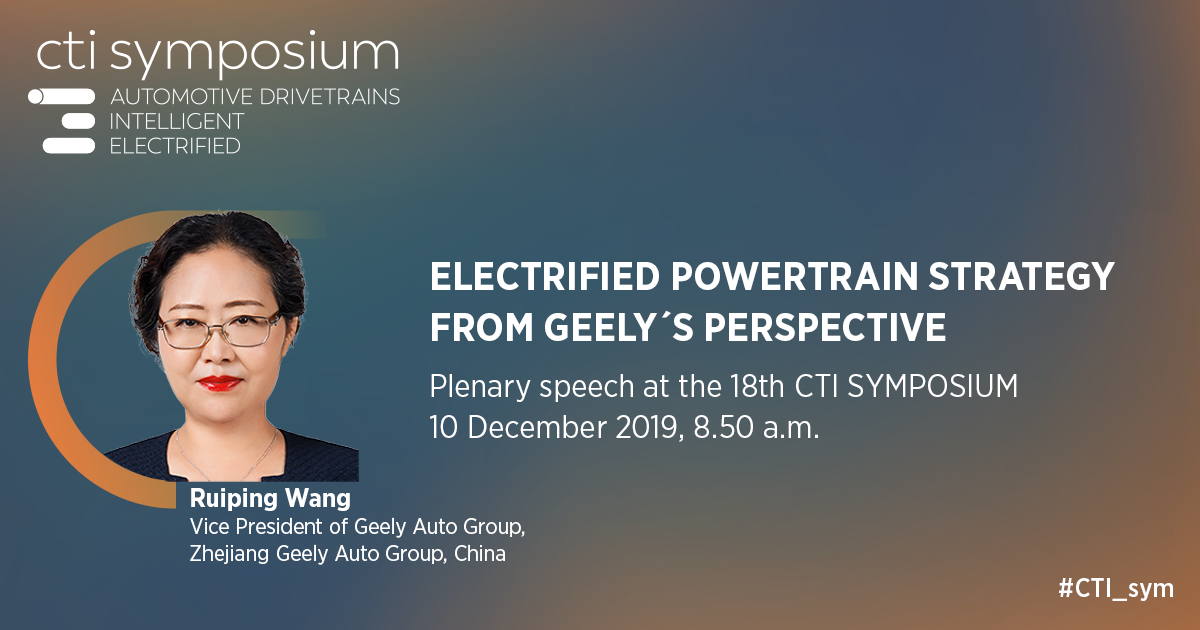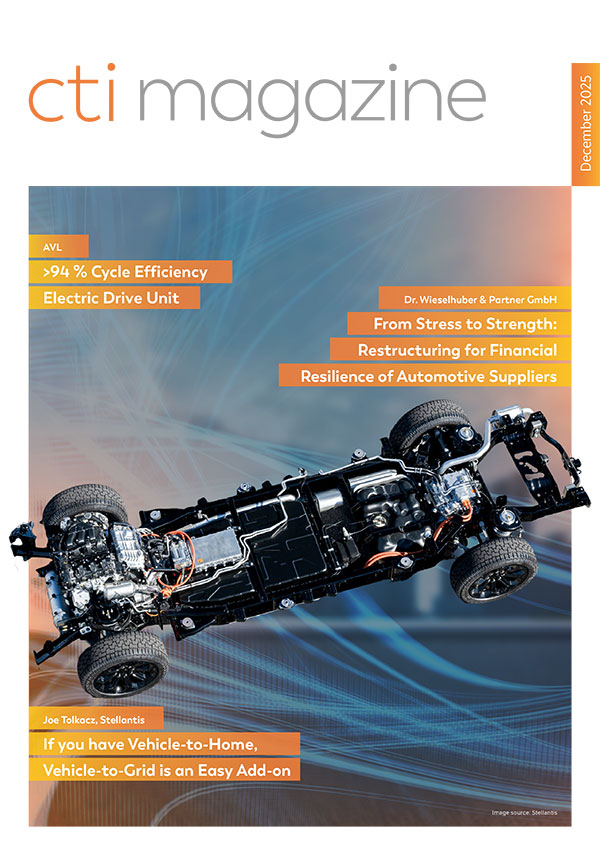
Ruiping Wang, Vice President, Zhejiang Geely Auto Group: “The biggest growth will be in hybrid drives”
As the first speaker at the 18th CTI Symposium Berlin, Ruiping Wang presented her company’s strategy and gave insights into market conditions in China. With peak sales of 24 million cars per year (2017), China is the world’s largest market, though sales have fallen slightly of late. The new government Incentive Policy is influencing electrified vehicle sales: the required annual share of NEVs (New Energy Vehicles) is growing, yet BEV subsidies were halved in mid-2019 and deleted for electric ranges below 250 km. But for 42% of Chinese customers, Wang said, the Incentive Policy was a major reason to buy. On the other hand, the new LFCV (Low Fuel Consumption Vehicle) Incentive Policy encouraged the development of economical hybrid vehicles.
Looking ahead, Wang expects strong growth in HEVs and PHEVs teamed with petrol engines, as well as further growth in BEVs. She believes 90% of drives will involve an ICE in 2030, and foresees a 60% market share for hybrid drives in 2040. Accordingly, Geely’s strategy already includes the ‘intelligent’ Geely 3.0 drive. This couples highly efficient ICEs with conventional / electrified dual clutch transmissions offering seven speeds and different torque densities. Wang said Geely aimed for 90% component sharing in engines, and 85% in its DCTs. More drive electrification would lead to fewer gear steps, supplemented by even more efficient ICEs. As an example, Wang cited the combination of a plug-in hybrid DHT and a DHE (Dedicated Hybrid Engine), saying this could achieve 45% efficiency.
Wang said the CLTC (China Light Duty Test Cycle), which takes effect in 2025, reflected the country’s traffic realities fairly well. While CLTC required a lower average speed than NEDC and WLTC (29.0 vs. 33.6 and 46. 5 km/h), test vehicles were driven more dynamically than under NEDC, in a similar way to WLTC. Wang said the real average speed in China was only around 30 km/h, compared to 50 km/h in Europe and the USA. Also, cars spent over 60% of the time driving in cities. Particularly in the small car segment, Geely expects to see range-extended vehicles used for primarily electric driving – not PHEVs as in higher segments.
Wang believes in the need for ‘Diversified Tech Routes’ that include all technologies, certainly including a clear focus on electrified drives in the coming decades.

Ruiping Wang
Vice President of Geely Auto Group
Zhejiang Geely Auto Group, China
18th International Congress and Expo | Automotive Drivetrains – Intelligent – Electrified | 9 – 12 December 2019, Berlin
